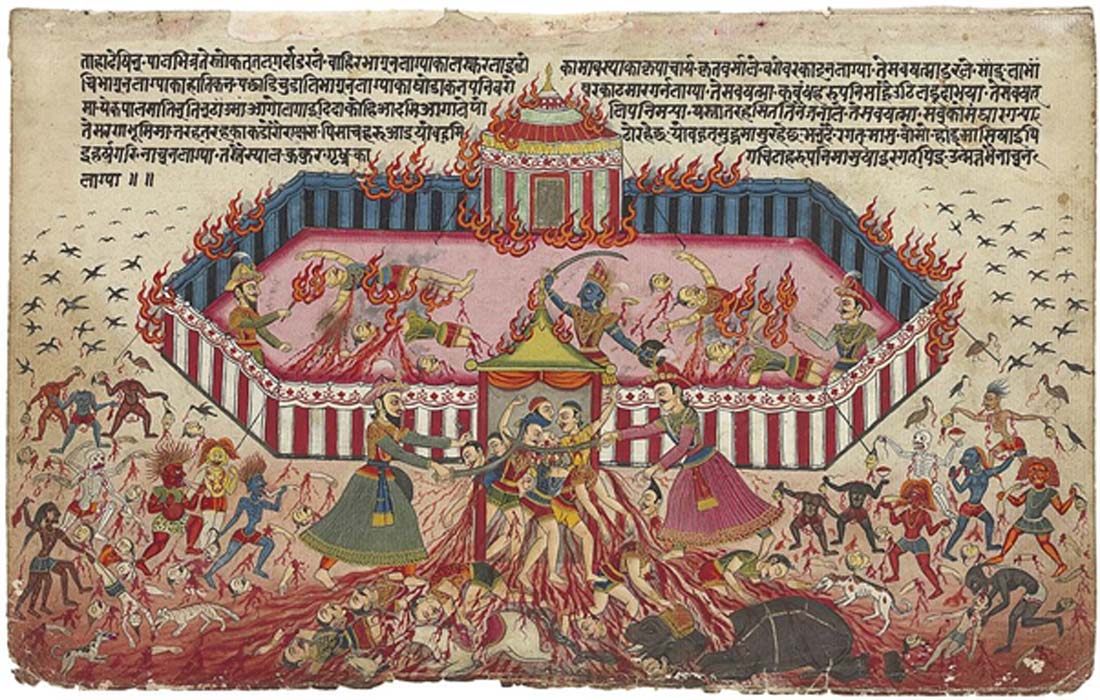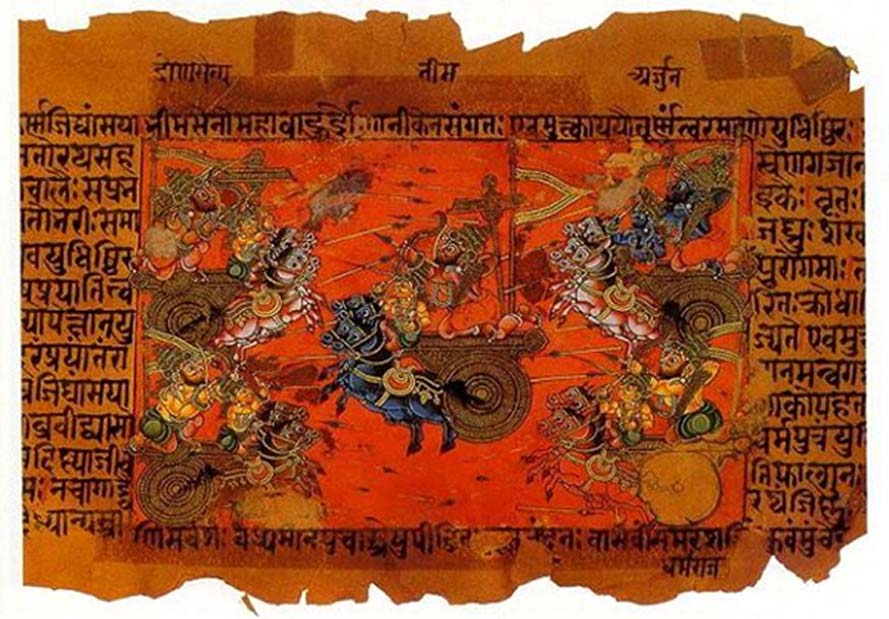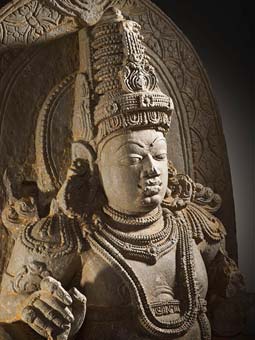
The Legend of Shikhandi, the Transgendered Warrior Who Paid the Price of Opposing Powerful Men
Chauvinism existed even in the Hindu epic Mahabharata. The ancient text depicts the legendary eighteen-day bloodbath, dubbed the Kurukshetra War, where the hero/heroine’s greatest feat was not defeating the enemy, but overcoming stereotyped prejudice.

The Battle of Kurukshetra, fought between the Kauravas and the Pandavas, recorded in the Mahabharata. (Public domain)
This war was a battle between the five Pandava brothers and their cousins, the Kauravas. Bhisma, the leader of the Kauravas’ army, was a mighty war lord and it seemed as if both armies were deadlocked. Lord Krishna – an avatar of the god Vishnu – tipped the scales when he recognized the warrior skills of Shikhandi, a young male soldier, who was born a woman.
“A woman on the battlefield?” sneered all five Pandavas, somewhat conveniently forgetting that they themselves worshiped the warrior goddess Durga. Shikhandi, the soldier caught up in this debate, was born Shikhandini. She was the daughter of King Draupada and elder sister of Draupadi who married all five of the Pandava brothers. Although she was born a female, Shikhandini was raised as a man - she was taught warfare and statecraft.
- Burnt remnants of ancient city found from era of the Mahabharata
- The Supernatural Weapons of the Mahabharata and Their World Destroying Power
- Impossible Quest to Have the Perfect Man? The 5 Imperfect Brothers of the Mahabharata
A Woman Ruined by Warriors: The Story of Amba
Before Shikhandi’s reincarnation, in a previous life he was born as a woman named Amba. Amba was the eldest of the three daughters of the King of Kashi along with her sisters Ambika and Ambalika. Bhisma, abducted the princesses and presented them as brides to his sickly brother Vichitravirya, the crown prince of Hastinapura.
Amba was brave enough to protest. She told Bhisma that she had fallen in love with Salva, another warrior, and was not willing to marry anyone else. The code of honor among the kshatriyas (warriors) prohibited the taking of a woman who loved another. Therefor Vichitravirya married only her two sisters and Bhisma sent Amba back to Salva.
However, Amba paid dearly for voicing her resistance. In a cruel turn of events, Salva used the same kshatriya code to reject Amba. Salva refused to marry Amba, who he considered soiled by contact with another man (Bhisma). The distraught Amba then returned to Hastinapura, but the crown prince Vichitravirya wanted nothing to do with her. Amba demanded that Bhisma marry her himself, but he had sworn an oath never to enter matrimony. “When you took the vow never to be with a woman, what gave you the right to abduct me?” Amba cried as Bhisma ignored her. Amba implored other warriors to kill Bhisma in her name, but no one would stand up against Bhisma, the most powerful and respected warrior of his generation. Except for one man; Parashurama, a great warrior and Bhisma’s own mentor. However, even he failed in his mission.
Amba renounced all hope and commenced a life of the most severe austerities, living only on fresh water and air. One day, the god Shiva took pity and appeared before her. Amba recanted him her woeful tale and her wish to avenge herself on Bhisma. “Make me the cause of his death,” she begged him. In response Shiva blessed her: “In your next life, you will remember all the sorrow that Bhisma caused you. You shall be born as the son of Drupada and become a maharatha (master of all battle formations and strategies). You shall cause the death of Bhisma.” To accelerate this process, Amba immediately leapt into a funeral pyre. However, she was not reincarnated as a man - she was reborn as Shikhandini, the daughter of King Drupada of Panchala.





